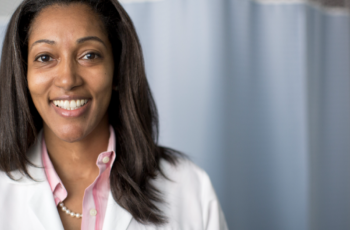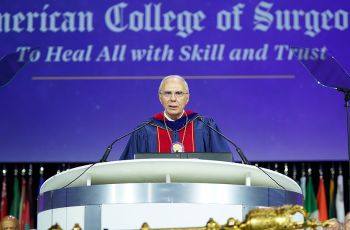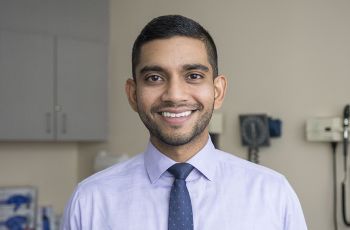Featured News
October is Breast Cancer Awareness Month, and though the incidence of breast cancer is high, early detection is the key to successful outcomes. According to the National Cancer Society, nearly 4 million women in the United States with a history of the disease are alive today, mainly because of…
Anton N. Sidawy, MD, MPH ’99, FACS, DFSVS, MAMSE, Lewis B. Saltz Chair of the Department of Surgery and professor of surgery at the George Washington University School of Medicine and Health Sciences in Washington, D.C., was installed as the 106th President of the American College of Surgeons (ACS…
Pooja Sodha, MD, spoke to Fox5DC on the dos and don'ts of summer hair care.
The GW Medical Faculty Associates (GW MFA) proudly announces that the GW MFA Pharmacy has achieved accreditation through the Accreditation Commission for Health Care (ACHC) for Specialty Pharmacy services. GW MFA Pharmacy has demonstrated a commitment to providing quality care and services to…
Vishal Patel, MD, (GW) Cancer Center and GW MFA, breaks down what you need to know about skin cancer, how it is treated, and what you can do to protect yourself now.
Dr. Pooja Sodha spoke to The Bump about what to consider when it comes to Retinol use in skincare and other products during pregnancy.
Dr. Pooja Sodha joined Good Day DC to break down how your nutrition and skincare are directly related.
Dr. Pooja Sodha shared some sunscreen recommendations with Good Day DC.
Frequent interruptions to sleep and daytime sleepiness may be indicative of sleep apnea and warrant a consultation with a sleep expert.
Dr. Pooja Sodha joined Good Day DC and walked through common skincare items worth splurging on or where you can save your money.










